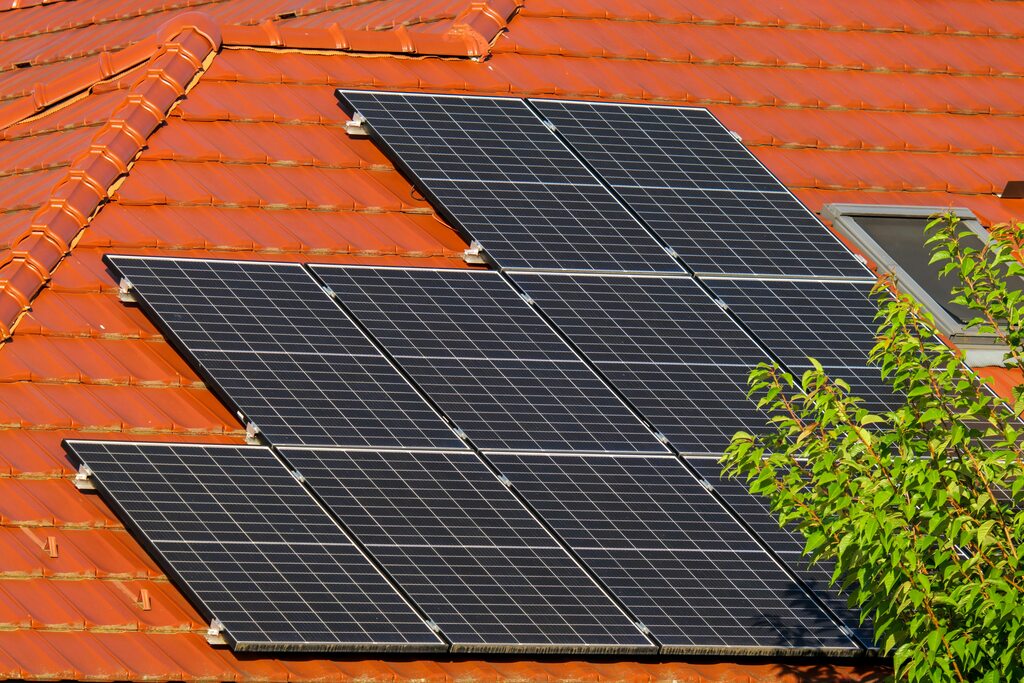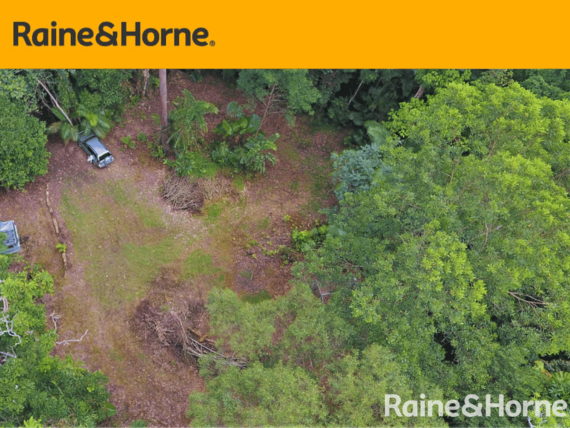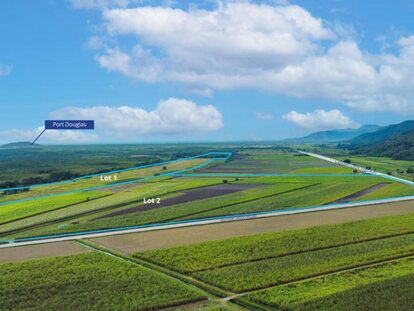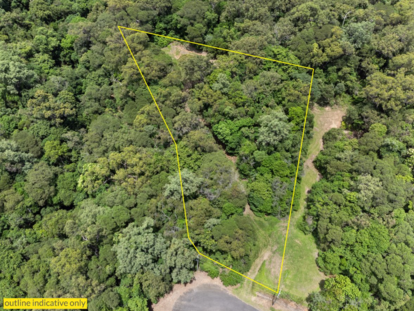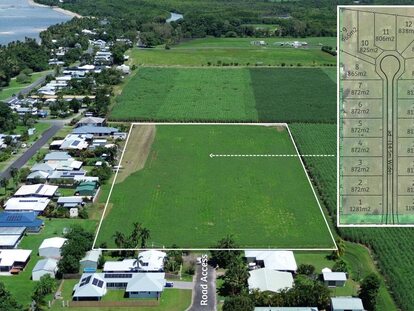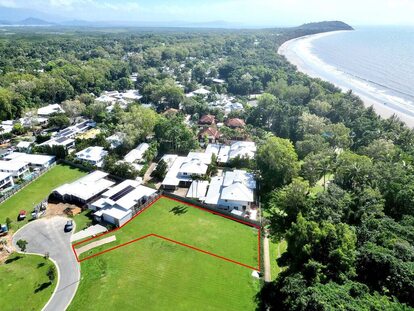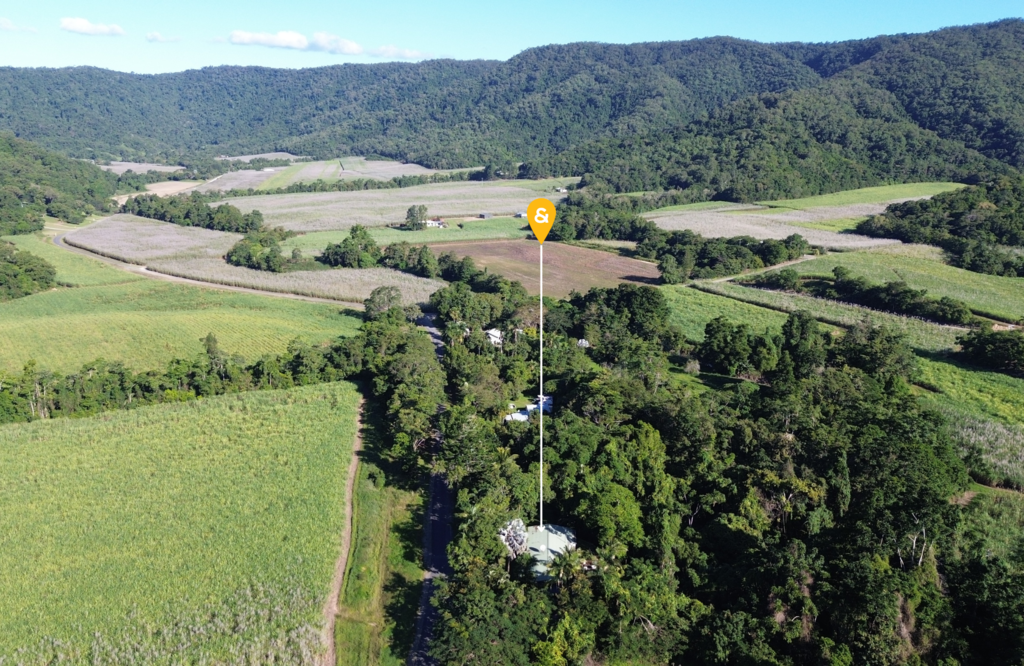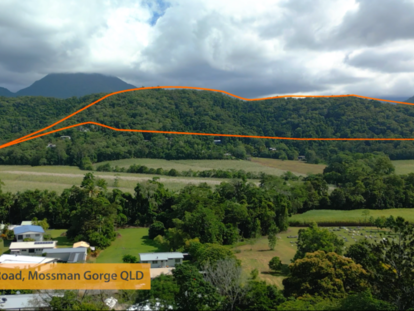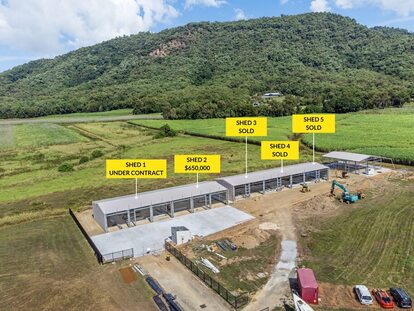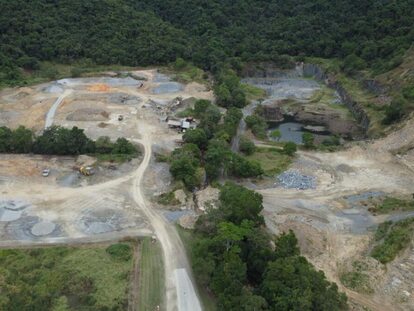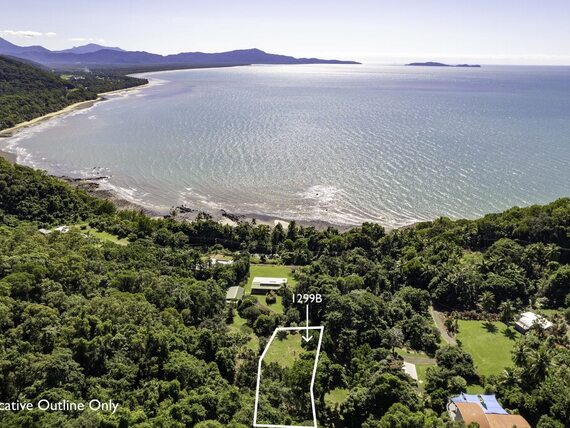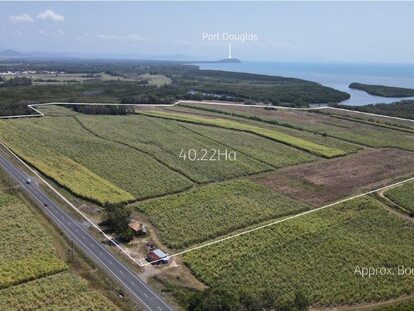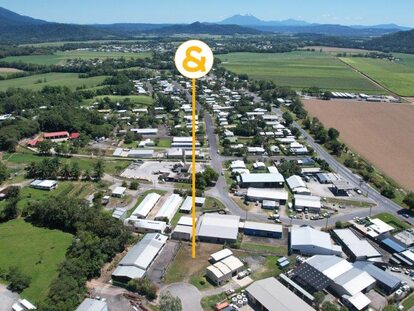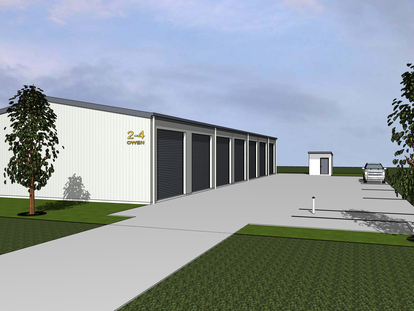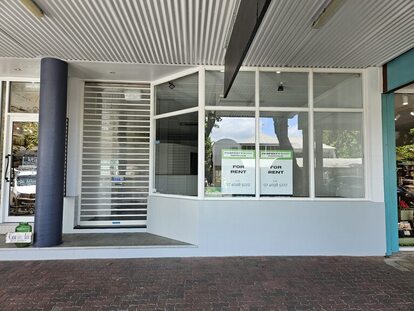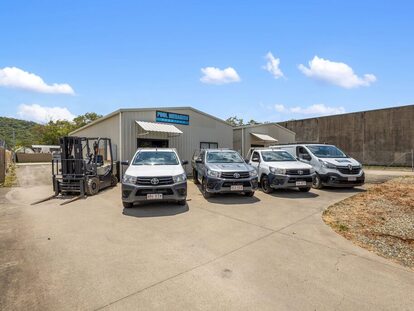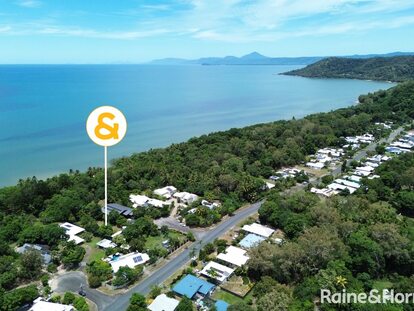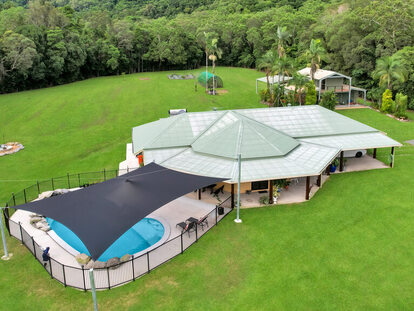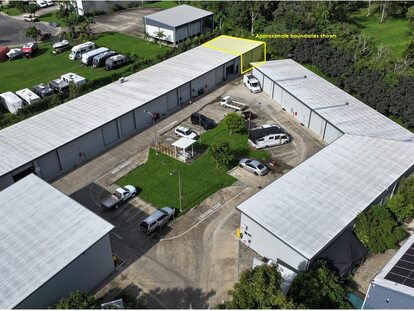|
(
85
)
|
Date
|
Start time
|
End time
|
Event name
|
Event description
|
Location
|
Cost
|
Website link
|
Event contact phone
|
Event contact email
|
Category (Maximum of 4 categories)
|
Terms and conditions
|
Name
|
Email
|
Phone
| |
|---|
| 1. |
Sunday 8 June 2025
2025-06-08T00:00:00+10:00
| | |
Maho Magic Bar
|
Be transported to a neon-lit Tokyo night of mischief, amazement, cocktails and laughter. Get ready to disbelieve your eyes as Japan's very best perform exclusive magic shows at your table. Part show. Part bar. All magic!
|
Dixie Park
|
From $62.10
|
https://www.mahomagicbar.com/portdouglas
| |
[email protected]
|
Arts & Culture, Live Entertainment
|
https://www.mahomagicbar.com/terms
|
Darcie
|
[email protected]
|
0403720255
| |
| 2. |
Saturday 7 June 2025
2025-06-07T00:00:00+10:00
| | |
Maho Magic Bar
|
Be transported to a neon-lit Tokyo night of mischief, amazement, cocktails and laughter. Get ready to disbelieve your eyes as Japan's very best perform exclusive magic shows at your table. Part show. Part bar. All magic!
|
Dixie Park
|
From $62.10
|
https://www.mahomagicbar.com/portdouglas
| |
[email protected]
|
Arts & Culture, Live Entertainment
|
https://www.mahomagicbar.com/terms
|
Darcie
|
[email protected]
|
0403720255
| |
| 3. |
Friday 6 June 2025
2025-06-06T00:00:00+10:00
| | |
Maho Magic Bar
|
Be transported to a neon-lit Tokyo night of mischief, amazement, cocktails and laughter. Get ready to disbelieve your eyes as Japan's very best perform exclusive magic shows at your table. Part show. Part bar. All magic!
|
Dixie Park
|
From $77
|
https://www.mahomagicbar.com/portdouglas
| |
[email protected]
|
Arts & Culture, Live Entertainment
|
https://www.mahomagicbar.com/terms
|
Darcie
|
[email protected]
|
0403720255
| |
| 4. |
Thursday 5 June 2025
2025-06-05T00:00:00+10:00
| | |
Maho Magic Bar
|
Be transported to a neon-lit Tokyo night of mischief, amazement, cocktails and laughter. Get ready to disbelieve your eyes as Japan's very best perform exclusive magic shows at your table. Part show. Part bar. All magic!
|
Dixie Park
|
From $64
|
https://www.mahomagicbar.com/portdouglas
| |
[email protected]
|
Arts & Culture, Live Entertainment
|
https://www.mahomagicbar.com/terms
|
Darcie
|
[email protected]
|
0403720255
| |
| 5. |
Wednesday 4 June 2025
2025-06-04T00:00:00+10:00
| | |
Maho Magic Bar
|
Be transported to a neon-lit Tokyo night of mischief, amazement, cocktails and laughter. Get ready to disbelieve your eyes as Japan's very best perform exclusive magic shows at your table. Part show. Part bar. All magic!
|
Dixie Park
|
From $64
|
https://www.mahomagicbar.com/portdouglas
| |
[email protected]
|
Arts & Culture, Live Entertainment
|
https://www.mahomagicbar.com/terms
|
Darcie
|
[email protected]
|
0403720255
| |
| 6. |
Sunday 1 June 2025
2025-06-01T00:00:00+10:00
| | |
Maho Magic Bar
|
Be transported to a neon-lit Tokyo night of mischief, amazement, cocktails and laughter. Get ready to disbelieve your eyes as Japan's very best perform exclusive magic shows at your table. Part show. Part bar. All magic!
|
Dixie Park
|
From $62.10
|
https://www.mahomagicbar.com/portdouglas
| |
[email protected]
|
Arts & Culture, Live Entertainment
|
https://www.mahomagicbar.com/terms
|
Darcie
|
[email protected]
|
0403720255
| |
| 7. |
Saturday 31 May 2025
2025-05-31T00:00:00+10:00
| | |
Maho Magic Bar
|
Be transported to a neon-lit Tokyo night of mischief, amazement, cocktails and laughter. Get ready to disbelieve your eyes as Japan's very best perform exclusive magic shows at your table. Part show. Part bar. All magic!
|
Dixie Park
|
From $62.10
|
https://www.mahomagicbar.com/portdouglas
| |
[email protected]
|
Arts & Culture, Live Entertainment
|
https://www.mahomagicbar.com/terms
|
Darcie
|
[email protected]
|
0403720255
| |
| 8. |
Friday 30 May 2025
2025-05-30T00:00:00+10:00
| | |
Maho Magic Bar
|
Be transported to a neon-lit Tokyo night of mischief, amazement, cocktails and laughter. Get ready to disbelieve your eyes as Japan's very best perform exclusive magic shows at your table. Part show. Part bar. All magic!
|
Dixie Park
|
From $77
|
https://www.mahomagicbar.com/portdouglas
| |
[email protected]
|
Arts & Culture, Live Entertainment
|
https://www.mahomagicbar.com/terms
|
Darcie
|
[email protected]
|
0403720255
| |
| 9. |
Thursday 29 May 2025
2025-05-29T00:00:00+10:00
| | |
Maho Magic Bar
|
Be transported to a neon-lit Tokyo night of mischief, amazement, cocktails and laughter. Get ready to disbelieve your eyes as Japan's very best perform exclusive magic shows at your table. Part show. Part bar. All magic!
|
Dixie Park
|
From $64
|
https://www.mahomagicbar.com/portdouglas
| |
[email protected]
|
Arts & Culture, Live Entertainment
|
https://www.mahomagicbar.com/terms
|
Darcie
|
[email protected]
|
0403720255
| |
| 10. |
Wednesday 28 May 2025
2025-05-28T00:00:00+10:00
| | |
Maho Magic Bar
|
Be transported to a neon-lit Tokyo night of mischief, amazement, cocktails and laughter. Get ready to disbelieve your eyes as Japan's very best perform exclusive magic shows at your table. Part show. Part bar. All magic!
|
Dixie Park
|
From $64
|
https://www.mahomagicbar.com/portdouglas
| |
[email protected]
|
Arts & Culture, Live Entertainment
|
https://www.mahomagicbar.com/terms
|
Darcie
|
[email protected]
|
0403720255
| |
| 11. |
Monday 26 May 2025
2025-05-26T00:00:00+10:00
| | |
Maho Magic Bar
|
Be transported to a neon-lit Tokyo night of mischief, amazement, cocktails and laughter. Get ready to disbelieve your eyes as Japan's very best perform exclusive magic shows at your table. Part show. Part bar. All magic!
|
Dixie Park
|
From $62.10
|
https://www.mahomagicbar.com/portdouglas
| |
[email protected]
|
Arts & Culture, Live Entertainment
|
https://www.mahomagicbar.com/terms
|
Darcie
|
[email protected]
|
0403720255
| |
| 12. |
Sunday 25 May 2025
2025-05-25T00:00:00+10:00
| | |
Maho Magic Bar
|
Be transported to a neon-lit Tokyo night of mischief, amazement, cocktails and laughter. Get ready to disbelieve your eyes as Japan's very best perform exclusive magic shows at your table. Part show. Part bar. All magic!
|
Dixie Park
|
From $62.10
|
https://www.mahomagicbar.com/portdouglas
| |
[email protected]
|
Arts & Culture, Live Entertainment
|
https://www.mahomagicbar.com/terms
|
Darcie
|
[email protected]
|
0403720255
| |
| 13. |
Saturday 24 May 2025
2025-05-24T00:00:00+10:00
| | |
Maho Magic Bar
|
Be transported to a neon-lit Tokyo night of mischief, amazement, cocktails and laughter. Get ready to disbelieve your eyes as Japan's very best perform exclusive magic shows at your table. Part show. Part bar. All magic!
|
Dixie Park
|
From $62.10
|
https://www.mahomagicbar.com/portdouglas
| |
[email protected]
|
Arts & Culture, Live Entertainment
|
https://www.mahomagicbar.com/terms
|
Darcie
|
[email protected]
|
0403720255
| |
| 14. |
Friday 23 May 2025
2025-05-23T00:00:00+10:00
| | |
Maho Magic Bar
|
Be transported to a neon-lit Tokyo night of mischief, amazement, cocktails and laughter. Get ready to disbelieve your eyes as Japan's very best perform exclusive magic shows at your table. Part show. Part bar. All magic!
|
Dixie Park
|
From $77
|
https://www.mahomagicbar.com/portdouglas
| |
[email protected]
|
Arts & Culture, Live Entertainment
|
https://www.mahomagicbar.com/terms
|
Darcie
|
[email protected]
|
0403720255
| |
| 15. |
Thursday 22 May 2025
2025-05-22T00:00:00+10:00
| | |
Maho Magic Bar
|
Be transported to a neon-lit Tokyo night of mischief, amazement, cocktails and laughter. Get ready to disbelieve your eyes as Japan's very best perform exclusive magic shows at your table. Part show. Part bar. All magic!
|
Dixie Park
|
From $64
|
https://www.mahomagicbar.com/portdouglas
| |
[email protected]
|
Arts & Culture, Live Entertainment
|
https://www.mahomagicbar.com/terms
|
Darcie
|
[email protected]
|
0403720255
| |
| 16. |
Wednesday 21 May 2025
2025-05-21T00:00:00+10:00
| | |
Maho Magic Bar
|
Be transported to a neon-lit Tokyo night of mischief, amazement, cocktails and laughter. Get ready to disbelieve your eyes as Japan's very best perform exclusive magic shows at your table. Part show. Part bar. All magic!
|
Dixie Park
|
From $64
|
https://www.mahomagicbar.com/portdouglas
| |
[email protected]
|
Arts & Culture, Live Entertainment
|
https://www.mahomagicbar.com/terms
|
Darcie
|
[email protected]
|
0403720255
| |
| 17. |
Sunday 18 May 2025
2025-05-18T00:00:00+10:00
| | |
Maho Magic Bar
|
Be transported to a neon-lit Tokyo night of mischief, amazement, cocktails and laughter. Get ready to disbelieve your eyes as Japan's very best perform exclusive magic shows at your table. Part show. Part bar. All magic!
|
Dixie Park
|
From $62.10
|
https://www.mahomagicbar.com/portdouglas
| |
[email protected]
|
Arts & Culture, Live Entertainment
|
https://www.mahomagicbar.com/terms
|
Darcie
|
[email protected]
|
0403720255
| |
| 18. |
Saturday 17 May 2025
2025-05-17T00:00:00+10:00
| | |
Maho Magic Bar
|
Be transported to a neon-lit Tokyo night of mischief, amazement, cocktails and laughter. Get ready to disbelieve your eyes as Japan's very best perform exclusive magic shows at your table. Part show. Part bar. All magic!
|
Dixie Park
|
From $62.10
|
https://www.mahomagicbar.com/portdouglas
| |
[email protected]
|
Arts & Culture, Live Entertainment
|
https://www.mahomagicbar.com/terms
|
Darcie
|
[email protected]
|
0403720255
| |
| 19. |
Friday 16 May 2025
2025-05-16T00:00:00+10:00
| | |
Maho Magic Bar
|
Be transported to a neon-lit Tokyo night of mischief, amazement, cocktails and laughter. Get ready to disbelieve your eyes as Japan's very best perform exclusive magic shows at your table. Part show. Part bar. All magic!
|
Dixie Park
|
From $77
|
https://www.mahomagicbar.com/portdouglas
| |
[email protected]
|
Arts & Culture, Live Entertainment
|
https://www.mahomagicbar.com/terms
|
Darcie
|
[email protected]
|
0403720255
| |
| 20. |
Thursday 15 May 2025
2025-05-15T00:00:00+10:00
| | |
Maho Magic Bar
|
Be transported to a neon-lit Tokyo night of mischief, amazement, cocktails and laughter. Get ready to disbelieve your eyes as Japan's very best perform exclusive magic shows at your table. Part show. Part bar. All magic!
|
Dixie Park
|
From $62.10
|
https://www.mahomagicbar.com/portdouglas
| |
[email protected]
|
Arts & Culture, Live Entertainment
|
https://www.mahomagicbar.com/terms
|
Darcie
|
[email protected]
|
0403720255
| |
| 21. |
Wednesday 14 May 2025
2025-05-14T00:00:00+10:00
| | |
Maho Magic Bar
|
Be transported to a neon-lit Tokyo night of mischief, amazement, cocktails and laughter. Get ready to disbelieve your eyes as Japan's very best perform exclusive magic shows at your table. Part show. Part bar. All magic!
|
Dixie Park
|
From $62.10
|
https://www.mahomagicbar.com/portdouglas
| |
[email protected]
|
Arts & Culture, Live Entertainment
|
https://www.mahomagicbar.com/terms
|
Darcie
|
[email protected]
|
0403720255
| |
| 22. |
Saturday 17 May 2025
2025-05-17T00:00:00+10:00
|
9am
|
1pm
|
Rainforest Rescue Annual Community Tree Planting Day
|
This will mark the end of an era as we plant out the final plot at NightWings Rainforest Centre. Join us!
Our tenth Annual Planting at NightWings will be a morning of nature, good vibes and getting together as a community. Expect live music, a rainforest tour and plenty of beautiful native trees to plant. Morning tea and a light lunch provided for registered tree planters.
Check out the web link for free registration and what to wear and bring. See you there! :)
|
NightWings Rainforest Centre, 2125 Mossman Daintree Road, Wonga, Qld
|
Free
|
https://www.rainforestrescue.org.au/2025-planting/
| |
[email protected]
|
Community Event, Family Event, Free Event, Senior Event
| |
Mark Cox
|
[email protected]
|
0414 547800
| |
| 23. |
Wednesday 14 May 2025
2025-05-14T00:00:00+10:00
|
6.30 to start at 7 pm
| |
Douglas Shire Meals on Wheels Trivia Night Fundraiser
|
To help keep Meals On Wheels' vital service running, the organization is hosting a trivia night fundraiser on Wednesday, May 14 at the Central Hotel.
|
The Central Hotel Port Douglas
|
$0
| | | |
Community Event
| |
Gabi
|
[email protected]
|
0452208487
| |
| 24. |
Saturday 10 May 2025
2025-05-10T00:00:00+10:00
|
4pm
|
7pm
|
Free live music weekend
|
Free Live music weekend!!!
Saturday Stuie Harcourt 4pm - 7pm
Sunday Mike Elrington 4pm -7pm
Food Truck, Meat tray Raffles, Live Sports and ice-cold Drinks
|
Barrier Reef Tavern
|
Free
| |
4099 3655
|
[email protected]
|
Free Event, Live Entertainment
| |
Stewart Booth
|
[email protected]
|
0418562288
| |
| 25. |
Saturday 17 May 2025
2025-05-17T00:00:00+10:00
| | |
PDYC Riddoch Insurance Race Week
|
Tropical Coral Sea yacht racing in its finest form. Sailing the winds of paradise.
|
Port Douglas
| | | | |
Major Event
| |
Peter Cooper
|
[email protected]
|
0484817241
| |
| 26. |
Friday 16 May 2025
2025-05-16T00:00:00+10:00
| | |
PDYC Riddoch Insurance Race Week
|
Tropical Coral Sea yacht racing in its finest form. Sailing the winds of paradise.
|
Port Douglas
| | | | |
Major Event
| |
Peter Cooper
|
[email protected]
|
0484817241
| |
| 27. |
Thursday 15 May 2025
2025-05-15T00:00:00+10:00
| | |
PDYC Riddoch Insurance Race Week
|
Tropical Coral Sea yacht racing in its finest form. Sailing the winds of paradise.
|
Port Douglas
| | | | |
Major Event
| |
Peter Cooper
|
[email protected]
|
0484817241
| |
| 28. |
Wednesday 14 May 2025
2025-05-14T00:00:00+10:00
| | |
PDYC Riddoch Insurance Race Week
|
Tropical Coral Sea yacht racing in its finest form. Sailing the winds of paradise.
|
Port Douglas
| | | | |
Major Event
| |
Peter Cooper
|
[email protected]
|
0484817241
| |
| 29. |
Tuesday 13 May 2025
2025-05-13T00:00:00+10:00
| | |
PDYC Riddoch Insurance Race Week
|
Tropical Coral Sea yacht racing in its finest form. Sailing the winds of paradise.
|
Port Douglas
| | | | |
Major Event
| |
Peter Cooper
|
[email protected]
|
0484817241
| |
| 30. |
Monday 12 May 2025
2025-05-12T00:00:00+10:00
| | |
PDYC Riddoch Insurance Race Week
|
Tropical Coral Sea yacht racing in its finest form. Sailing the winds of paradise.
|
Port Douglas
| | | | |
Major Event
| |
Peter Cooper
|
[email protected]
|
0484817241
| |
| 31. |
Tuesday 27 May 2025
2025-05-27T00:00:00+10:00
|
1:00pm
|
4:00pm
|
Four Mile Beach Monthly Clean-up
|
Looking for a way to be part of practical solutions for our environment? Four Mile Beach in Port Douglas is one of our longest-running QLD beach monitoring sites. We have been cleaning and collecting data from this site each month for the past 12 years.
Volunteers need to wear enclosed shoes, bring sun/rain protection, and plenty of drinking water (1 to 2 litres is recommended). We try to ensure that all Tangaroa Blue events are free from single-use plastic, so bring along your reusable water bottle. All equipment and drinking water top-ups will be provided.
To register or for any questions, please email [email protected]. Thank you for dedicating your energy towards protecting our oceans, and we look forward to seeing you out on the beach!
|
Daintree Lounge at the Sheraton Grand Mirage, Port Douglas (behind the piano)
| |
https://tangaroablue.org/events-calendar/four-mile-beach-north-and-middle-monthly-clean-up/
| |
[email protected]
|
Community Event, Free Event
| |
Lucy
|
[email protected]
|
0431870165
| |
| 32. |
Saturday 31 May 2025
2025-05-31T00:00:00+10:00
|
7:00pm
|
10:00pm
|
Wait-A-While Duo
|
Live and free entertainment at Club Mossman. Wait-a-while duo performing from 7pm. Bistro is open for lunch and dinner and bookings can be made on our website clubmossman.com.au
|
Club Mossman
|
Free
|
www.clubmossman.com.au
|
0740981434
|
[email protected]
|
Live Entertainment
| |
Melissa Di Pietro
|
[email protected]
|
0740981434
| |
| 33. |
Friday 26 September 2025
2025-09-26T00:00:00+10:00
|
7:30pm
|
10:30pm
|
Rockin' Rick Karaoke
|
Rockin' Rick Karaoke is starting at 7:30pm. Enjoy an array of local talent live at Club Mossman. Bistro opens at 5:30pm and bookings can be made via clubmossman.com.au. Members Draw and Jag a Joker from 6:30pm. Be there to win!
|
Club Mossman
|
Free
|
www.clubmossman.com.au
|
0740981434
|
[email protected]
|
Live Entertainment
| |
Melissa Di Pietro
|
[email protected]
|
0740981434
| |
| 34. |
Friday 29 August 2025
2025-08-29T00:00:00+10:00
|
7:30pm
|
10:30pm
|
Rockin' Rick Karaoke
|
Rockin' Rick Karaoke is starting at 7:30pm. Enjoy an array of local talent live at Club Mossman. Bistro opens at 5:30pm and bookings can be made via clubmossman.com.au. Members Draw and Jag a Joker from 6:30pm. Be there to win!
|
Club Mossman
|
Free
|
www.clubmossman.com.au
|
0740981434
|
[email protected]
|
Live Entertainment
| |
Melissa Di Pietro
|
[email protected]
|
0740981434
| |
| 35. |
Friday 25 July 2025
2025-07-25T00:00:00+10:00
|
7:30pm
|
10:30pm
|
Rockin' Rick Karaoke
|
Rockin' Rick Karaoke is starting at 7:30pm. Enjoy an array of local talent live at Club Mossman. Bistro opens at 5:30pm and bookings can be made via clubmossman.com.au. Members Draw and Jag a Joker from 6:30pm. Be there to win!
|
Club Mossman
|
Free
|
www.clubmossman.com.au
|
0740981434
|
[email protected]
|
Live Entertainment
| |
Melissa Di Pietro
|
[email protected]
|
0740981434
| |
| 36. |
Friday 27 June 2025
2025-06-27T00:00:00+10:00
|
7:30pm
|
10:30pm
|
Rockin' Rick Karaoke
|
Rockin' Rick Karaoke is starting at 7:30pm. Enjoy an array of local talent live at Club Mossman. Bistro opens at 5:30pm and bookings can be made via clubmossman.com.au. Members Draw and Jag a Joker from 6:30pm. Be there to win!
|
Club Mossman
|
Free
|
www.clubmossman.com.au
|
0740981434
|
[email protected]
|
Live Entertainment
| |
Melissa Di Pietro
|
[email protected]
|
0740981434
| |
| 37. |
Friday 30 May 2025
2025-05-30T00:00:00+10:00
|
7:30pm
|
10:30pm
|
Rockin' Rick Karaoke
|
Rockin' Rick Karaoke is starting at 7:30pm. Enjoy an array of local talent live at Club Mossman. Bistro opens at 5:30pm and bookings can be made via clubmossman.com.au. Members Draw and Jag a Joker from 6:30pm. Be there to win!
|
Club Mossman
|
Free
|
www.clubmossman.com.au
|
0740981434
|
[email protected]
|
Live Entertainment
| |
Melissa Di Pietro
|
[email protected]
|
0740981434
| |
| 38. |
Sunday 25 May 2025
2025-05-25T00:00:00+10:00
|
4:00pm
|
7:00pm
|
Brandon Walker
|
Local and live entertainment at Club Mossman. Local artist Brandon Walker will be strumming his guitar from 4pm, Bistro opens at 5:30pm and bookings can be made via clubmossman.com.au.
Come in earlier for lunch and enjoy a Sunday Roast, available from 11:30am.
|
Club Mossman
|
Free
|
www.clubmossman.com.au
|
0740981434
|
[email protected]
|
Live Entertainment
| |
Melissa Di Pietro
|
[email protected]
|
0740981434
| |
| 39. |
Saturday 17 May 2025
2025-05-17T00:00:00+10:00
|
12:00pm
|
7:00pm
|
Hock's Day Fundraiser and Yahdoh
|
Enjoy a great day out of barefoot bowls and raise money for the Friends of the Foundation - Mossman Hospital. $10 per person to participate, midday start, Sausage sizzle, Mega Raffles, Yahdoh performing from 3pm-7pm. Registration sheet located at Club Mossman to put your name down.
|
Club Mossman
|
Free
|
www.clubmossman.com.au
|
0740981434
|
[email protected]
|
Live Entertainment
| |
Melissa Di Pietro
|
[email protected]
|
0740981434
| |
| 40. |
Friday 16 May 2025
2025-05-16T00:00:00+10:00
|
7:30pm
|
10:30pm
|
Rockin' Rick DJ
|
Enjoy a great night out with dinner in the Bistro try the Chef's Specials opens at 5:30pm. Live and local Rockin' Rick DJ will be entertaining you. Song requests welcome!
|
Club Mossman
|
Free
|
www.clubmossman.com.au
|
0740981434
|
[email protected]
|
Live Entertainment
| |
Melissa Di Pietro
|
[email protected]
|
0740981434
| |
| 41. |
Sunday 11 May 2025
2025-05-11T00:00:00+10:00
|
4:00pm
|
7:00pm
|
Shanice Duo
|
Shanice Duo will be performing at Club Mossman from 4pm providing an array of music to cater to all tastes. Enjoy a lovely Sunday afternoon with ice cold beer. Sunday Roast is on offer in the Bistro for lunch open from 11:30am. Book online to secure your table. Mother's Day draw will be held at 2pm - purchase a main meal in the bistro to go into the draw to win a $200 Spa voucher at Vie Spa, Sea Temple.
|
Club Mossman
|
Free
|
www.clubmossman.com.au
|
0740981434
|
[email protected]
|
Live Entertainment
| |
Melissa Di Pietro
|
[email protected]
|
0740981434
| |
| 42. |
Friday 9 May 2025
2025-05-09T00:00:00+10:00
|
7:00pm
|
10:00pm
|
Yahdoh
|
Local and live entertainment at Club Mossman. Local artist Yahdoh will be performing from 7pm, Bistro opens at 5:30pm and bookings can be made via clubmossman.com.au. Members Draw and Jag a Joker from 6:30pm. Be there to win!
|
Club Mossman
|
Free
|
www.clubmossman.com.au
|
0740981434
|
[email protected]
|
Live Entertainment
| |
Melissa Di Pietro
|
[email protected]
|
0740981434
| |
| 43. |
Sunday 25 May 2025
2025-05-25T00:00:00+10:00
|
8:00am
|
9:00am
|
Douglas Dash
|
5km foot race / walk on 4-Mile Beach and along Flagstaff Hill Walking Trail. Finish in Rex Smeal Park. Kids and dogs welcome too. Hosted by Dynamic Running. Register here: https://www.dynamicrunning.com.au/douglasdash/
|
Port Douglas
|
$25 per entry
|
https://www.dynamicrunning.com.au/douglasdash/
|
0417798444
|
[email protected]
|
Community Event, Family Event, Sport Event
| |
Lorraine Lawson
|
[email protected]
|
0417798444
| |
| 44. |
Saturday 30 August 2025
2025-08-30T00:00:00+10:00
|
5:30pm
|
10:00pm
|
Tusk-The Fleetwood Mac Tribute Show
|
From the emotionally charged beginnings of this iconic band to Stevie Nicks solo journey, Tusk-The Fleetwood Mac Tribute Show, gives the audience a peek into what makes Fleetwood Mac one of the greatest bands of all time. Penni Jones portrayal of Stevie Nicks is not only hauntingly authentic vocally but shows the dueling intensity and innocence of our leading lady that was only ever captured in early footage.
This year Tusk are celebrating half a century of hits from Fleetwood Mac & Stevie Nicks, bringing the big concert experience to you in one night.
With an all-star line up and over 10 years of touring Tusk is Australia’s leading Fleetwood Mac and Stevie Nicks experience.
All the chart-topping songs including Dreams, Go Your Own Way, Little Lies, Gypsy, Landslide, Rhiannon, Edge Of Seventeen, Don’t Stop and more.
|
Ellis Beach Bar & Grill
| |
https://www.entertainmentcairns.com/ellis-beach-bar-grill
| |
[email protected]
|
Live Entertainment, Major Event
| |
Jesse McClelland
|
[email protected]
|
40553534
| |
| 45. |
Saturday 19 July 2025
2025-07-19T00:00:00+10:00
|
5:30pm
|
8:30pm
|
Tahlia Brain @ Ellis Beach Bar & Grill
|
It's Saturday Live Music at Ellis Beach Bar & Grill 5:30pm - 8:30pm with Tahlia Brain!
Born and raised in the hills of North East Victoria, Tahlia Brain is an acoustic folk singer/songwriter who likes to tell a story through her music. Drawing inspirations from travelling on the road in her van and her love for the outdoors, she incorporates a soulful and unique tone into her songs and is getting ready to release her debut EP.
What else is on this Saturday?
• FREE Pancakes for the Kids** - From 7am to 11.30am
• $25 Crispy Squid Plate - From 12pm - 8pm
Don't feel like driving? Our courtesy bus will be operating 12:00pm - 9:00pm with pickups from Palm Cove, Clifton Beach, Kewarra Beach* & Trinity Beach*; Just call when you're ready to go!
*5 people or more
Check out our website for upcoming events, menus, specials and more!
https://ellisbeachbarandgrill.com.au/live-music-ellis-beach-cairns/
**Purchase any main meal and your child eats for free, under 14yo. Not available in conjunction with any other specials/deals.
|
Ellis Beach Bar & Grill
| |
https://www.entertainmentcairns.com/ellis-beach-bar-grill
| |
[email protected]
|
Free Event, Live Entertainment
| |
Jesse McClelland
|
[email protected]
|
40553534
| |
| 46. |
Saturday 28 June 2025
2025-06-28T00:00:00+10:00
|
1:00pm
|
4:00pm
|
Tahlia Brain @ Ellis Beach Bar & Grill
|
It's Saturday Live Music at Ellis Beach Bar & Grill 5:30pm - 8:30pm with Tahlia Brain!
Born and raised in the hills of North East Victoria, Tahlia Brain is an acoustic folk singer/songwriter who likes to tell a story through her music. Drawing inspirations from travelling on the road in her van and her love for the outdoors, she incorporates a soulful and unique tone into her songs and is getting ready to release her debut EP.
What else is on this Saturday?
• FREE Pancakes for the Kids** - From 7am to 11.30am
• $25 Crispy Squid Plate - From 12pm - 8pm
Don't feel like driving? Our courtesy bus will be operating 12:00pm - 9:00pm with pickups from Palm Cove, Clifton Beach, Kewarra Beach* & Trinity Beach*; Just call when you're ready to go!
*5 people or more
Check out our website for upcoming events, menus, specials and more!
https://ellisbeachbarandgrill.com.au/live-music-ellis-beach-cairns/
**Purchase any main meal and your child eats for free, under 14yo. Not available in conjunction with any other specials/deals.
|
Ellis Beach Bar & Grill
| |
https://www.entertainmentcairns.com/ellis-beach-bar-grill
| |
[email protected]
|
Free Event, Live Entertainment
| |
Jesse McClelland
|
[email protected]
|
40553534
| |
| 47. |
Saturday 7 June 2025
2025-06-07T00:00:00+10:00
|
4:00pm
|
10:00pm
|
Tequila, Tacos & Tunes
|
Your favourite event is back! We're throwing ourselves a beach fiesta again..... you bring your friends & we'll bring the tequila!
Join us on Saturday 7th of June from 4pm - 10pm as we kick off Tacos, Tequila & Tunes
We'll have live music from...
- Hoolia
Blending both South American soul and Far North Queensland spirit, HOOLIA is a Cairns-based Argentinian artist crafting original songs in English and Spanish. Her music blends gentle guitar and ukulele ballads with a subtle Latin flavour, telling stories of personal growth, connection, and empowerment. HOOLIA’s sound is intimate, reflective, and uplifting — a heartfelt invitation to pause, feel, and sing along.
- Kanela
Dance your way into the weekend at Ellis Beach Bar and Grill with Kanela!
Comprised of the best interpreters of Latin American Music in FNQ when they're playing you simply won't be able to sit still, so join everyone else on the dancefloor and let all your weekday worries melt away…
- Amazonas Latin Music
Let your body move and groove, cumbia, Cuban son, reggaeton, reggae, baladas and more!
- Andres DJ
Salsa, Reggaeton, Timba, cumbia
Tacos, Tacos, Tacos ... Margarita's and a truck load of tequila!
Tickets // Early Bird $20 - General $25
Campsite from $48/night >> www.ellisbeach.com
Courtesy bus available on the night. 07 4055 3534
|
Ellis Beach Bar & Grill
| |
https://www.entertainmentcairns.com/ellis-beach-bar-grill
| |
[email protected]
|
Live Entertainment, Major Event
| |
Jesse McClelland
|
[email protected]
|
40553534
| |
| 48. |
Sunday 25 May 2025
2025-05-25T00:00:00+10:00
|
1:00pm
|
4:00pm
|
Big Pups @ Ellis Beach Bar & Grill
|
It's Sunday Live Music at Ellis Beach Bar & Grill 1pm - 4pm with Big Pups!
Get ready to be blown away by the soulful sounds of Big Pups. With his dynamic range and captivating presence, Big Pups will have your guests tapping (stomping) their feet to his unique blend of country pop, blues, and rock.
What else is on?
• $2 Oysters available 1pm to 4pm unless sold out earlier
Don't feel like driving? Our courtesy bus will be operating 12:00pm - 6:00pm with pickups from Palm Cove, Clifton Beach, Kewarra Beach* & Trinity Beach*; Just call when you're ready to go!
*5 people or more
Check out our website for upcoming events, menus, specials and more!
https://ellisbeachbarandgrill.com.au/live-music-ellis-beach-cairns/
|
Ellis Beach Bar & Grill
| |
https://www.entertainmentcairns.com/ellis-beach-bar-grill
| |
[email protected]
|
Free Event, Live Entertainment
| |
Jesse McClelland
|
[email protected]
|
40553534
| |
| 49. |
Saturday 24 May 2025
2025-05-24T00:00:00+10:00
|
5:30pm
|
8:30pm
|
Nicole Nighthawk @ Ellis Beach Bar & Grill
|
It's Saturday Live Music at Ellis Beach Bar & Grill 5:30pm - 8:30pm with Nicole Nighthawk!
Nicole is fast becoming known for her engaging live performances at popular venues in and around Cairns where she plays an impressive mix of crowd-favourites and original songs.
What else is on this Saturday?
• FREE Pancakes for the Kids** - From 7am to 11.30am
• $25 Crispy Squid Plate - From 12pm - 8pm
Don't feel like driving? Our courtesy bus will be operating 12:00pm - 9:00pm with pickups from Palm Cove, Clifton Beach, Kewarra Beach* & Trinity Beach*; Just call when you're ready to go!
*5 people or more
Check out our website for upcoming events, menus, specials and more!
https://ellisbeachbarandgrill.com.au/live-music-ellis-beach-cairns/
**Purchase any main meal and your child eats for free, under 14yo. Not available in conjunction with any other specials/deals.
|
Ellis Beach Bar & Grill
| |
https://www.entertainmentcairns.com/ellis-beach-bar-grill
| |
[email protected]
|
Free Event, Live Entertainment
| |
Jesse McClelland
|
[email protected]
|
40553534
| |
| 50. |
Friday 23 May 2025
2025-05-23T00:00:00+10:00
|
5:30pm
|
8:30pm
|
Cam Kettle @ Ellis Beach Bar & Grill
|
It's Friday Night Live Music at Ellis Beach Bar & Grill 5:30pm - 8:30pm with Cam Kettle!
Cam brings you an acoustic rollercoaster of genres. His set lists vary to suit guests and will have you dancing all afternoon long!
What else is on?
• $35 Rump Steak and Schooner or House Wine. From 12 – 8pm
Don't feel like driving? Our courtesy bus will be operating 5:00pm - 9:00pm with pickups from Palm Cove, Clifton Beach, Kewarra Beach* & Trinity Beach*; Just call when you're ready to go!
*5 people or more
Check out our website for upcoming events, menus, specials and more!
https://ellisbeachbarandgrill.com.au/live-music-ellis-beach-cairns/
|
Ellis Beach Bar & Grill
| |
https://www.entertainmentcairns.com/ellis-beach-bar-grill
| |
[email protected]
|
Free Event, Live Entertainment
| |
Jesse McClelland
|
[email protected]
|
40553534
| |
| 51. |
Sunday 18 May 2025
2025-05-18T00:00:00+10:00
|
1:00pm
|
4:00pm
|
Kaweyova Duo @ Ellis Beach Bar & Grill
|
It's Sunday Live Music at Ellis Beach Bar & Grill 1pm - 4pm with Kaweyova Duo!
This Singer/Songwriter is a powerful presence whether she is playing as a part of a Duo/Band. Her Pop, Soul, Reggae sound is perfect to listen to as you have a relaxing meal or, get down on the dancefloor with friends!
What else is on?
• $2 Oysters available 1pm to 4pm unless sold out earlier
Don't feel like driving? Our courtesy bus will be operating 12:00pm - 6:00pm with pickups from Palm Cove, Clifton Beach, Kewarra Beach* & Trinity Beach*; Just call when you're ready to go!
*5 people or more
Check out our website for upcoming events, menus, specials and more!
https://ellisbeachbarandgrill.com.au/live-music-ellis-beach-cairns/
|
Ellis Beach Bar & Grill
| |
https://www.entertainmentcairns.com/ellis-beach-bar-grill
| |
[email protected]
|
Free Event, Live Entertainment
| |
Jesse McClelland
|
[email protected]
|
40553534
| |
| 52. |
Friday 16 May 2025
2025-05-16T00:00:00+10:00
|
5:30pm
|
8:30pm
|
Drewboy DUO @ Ellis Beach Bar & Grill
|
It's Friday Night Live Music at Ellis Beach Bar & Grill 5:30pm - 8:30pm with Drewboy Duo!
He's bringing you salubrious sounds to sip to and energetic, interactive with the crowd and combine high energy dance tunes, with beautiful storytelling and melodic tunes to leave any demographic satisfied.
What else is on?
• $35 Rump Steak and Schooner or House Wine. From 12 – 8pm
Don't feel like driving? Our courtesy bus will be operating 5:00pm - 9:00pm with pickups from Palm Cove, Clifton Beach, Kewarra Beach* & Trinity Beach*; Just call when you're ready to go!
*5 people or more
Check out our website for upcoming events, menus, specials and more!
https://ellisbeachbarandgrill.com.au/live-music-ellis-beach-cairns/
|
Ellis Beach Bar & Grill
| |
https://www.entertainmentcairns.com/ellis-beach-bar-grill
| |
[email protected]
|
Free Event, Live Entertainment
| |
Jesse McClelland
|
[email protected]
|
40553534
| |
| 53. |
Sunday 11 May 2025
2025-05-11T00:00:00+10:00
|
1:00pm
|
4:00pm
|
Rowly Duo @ Ellis Beach Bar & Grill
|
It's Sunday Live Music at Ellis Beach Bar & Grill 1pm - 4pm Rowly Duo!
It's Country rock, easy listening and of course good old Rock n Roll’ this weekend at Ellis Beach. Put on your dancing shoes and get onto the floor as Rowly brings us all your favourite tunes.
What else is on?
• $2 Oysters available 1pm to 4pm unless sold out earlier
Don't feel like driving? Our courtesy bus will be operating 12:00pm - 6:00pm with pickups from Palm Cove, Clifton Beach, Kewarra Beach* & Trinity Beach*; Just call when you're ready to go!
*5 people or more
Check out our website for upcoming events, menus, specials and more!
https://ellisbeachbarandgrill.com.au/live-music-ellis-beach-cairns/
|
Ellis Beach Bar & Grill
| |
https://www.entertainmentcairns.com/ellis-beach-bar-grill
| |
[email protected]
|
Free Event, Live Entertainment
| |
Jesse McClelland
|
[email protected]
|
40553534
| |
| 54. |
Friday 9 May 2025
2025-05-09T00:00:00+10:00
|
5:30pm
|
8:30pm
|
Stuie Harcourt @ Ellis Beach Bar & Grill
|
It's Friday Night Live Music at Ellis Beach Bar & Grill 5:30pm - 8:30pm with Stuie Harcourt!
Stu's husky sometimes soaring vocal ability, earthy lyrics, accomplished guitar work acoustic grooves with colours of didgeridoo have continued to delight audiences around Australia and the World.
What else is on?
• $35 Rump Steak and Schooner or House Wine. From 12 – 8pm
Don't feel like driving? Our courtesy bus will be operating 5:00pm - 9:00pm with pickups from Palm Cove, Clifton Beach, Kewarra Beach* & Trinity Beach*; Just call when you're ready to go!
*5 people or more
Check out our website for upcoming events, menus, specials and more!
https://ellisbeachbarandgrill.com.au/live-music-ellis-beach-cairns/
|
Ellis Beach Bar & Grill
| |
https://www.entertainmentcairns.com/ellis-beach-bar-grill
| |
[email protected]
|
Free Event, Live Entertainment
| |
Jesse McClelland
|
[email protected]
|
40553534
| |
| 55. |
Friday 9 May 2025
2025-05-09T00:00:00+10:00
|
3pm
|
6pm
|
Light Up The Park
|
Free BBQ, games, and activities, including water games—bring a towel!
This event is a great opportunity to connect with the community, learn about local groups and services, and enjoy an afternoon of food and fun.
Our events are always open to all local organisations, services, and businesses (including food vendors), so if you have any information to share, or if you'd like to run a workshop or an activity, we invite you to join us. This is a great opportunity to connect with the community and raise awareness about your work.
If you have any questions or would like to participate, feel free to reach out. Otherwise, we hope to see you there!
|
George Davis Park, 6 Foxton Ave, Mossman
|
FREE event - some Food & Merchandise FOR SALE
|
https://www.facebook.com/share/12KBfr87G5y/
|
0412 735 585
|
[email protected]
|
Community Event, Family Event, Free Event
| |
Lisa Laurin
|
[email protected]
|
0438401048
| |
| 56. |
Sunday 25 May 2025
2025-05-25T00:00:00+10:00
|
1
|
4
|
Matty Boi @ The Tin Shed
|
Kick back this Sunday at The Tin Shed Port Douglas with Matty Boi live from 1pm! Get into the groove with acoustic vibes, crowd favourites, and feel-good tunes — all with those unbeatable waterfront views. Grab your crew, enjoy a few drinks, and make a day of it!
|
The Tin Shed
| | | | |
Live Entertainment
| |
Tin Shed
|
[email protected]
|
40995553
| |
| 57. |
Sunday 18 May 2025
2025-05-18T00:00:00+10:00
|
1
|
4
|
Wendy & Ben Duo @ The Tin Shed
|
Sunday session at The Tin Shed Port Douglas with Wendy & Ben Duo live from 1pm. Enjoy an afternoon of smooth harmonies, upbeat acoustic favourites, and relaxed vibes by the water.
|
The Tin Shed
| | | | |
Live Entertainment
| |
Tin Shed
|
[email protected]
|
40995553
| |
| 58. |
Sunday 11 May 2025
2025-05-11T00:00:00+10:00
|
1
|
4
|
Shannon Hunter @ The Tin Shed
|
Sunday session at The Tin Shed Port Douglas with Shannon Hunter kicking off live from 1pm. Settle in for a vibrant afternoon of acoustic hits, soulful vocals, and unbeatable waterfront views. Perfect for a laid-back Sunday session with friends.
|
The Tin Shed
| | | | |
Live Entertainment
| |
Tin Shed
|
[email protected]
|
40995553
| |
| 59. |
Saturday 24 May 2025
2025-05-24T00:00:00+10:00
|
9:30am
|
12:30pm
|
Pooch Party
|
It’s the return of the most Pooch-tastic day of the year!
Clear your canines calendar and get ready to party! Join in for a day of fun and games, especially for our four-legged friends, their owners, and all animal lovers to socialise, picnic, and party!
This year, we’re meeting in Reynolds Park on the Garrick Street side and having a “Best Dressed Dog – Beach Parade”.
Best Dressed Dog Beach Parade
• Meet at Reynolds Park – Garrick Streetside, then a fun walk along Garrick Street to the beach entrance at the end, where we parade along the beach and then end up at the event space at the Port Douglas Surf Life Saving Club. It’s a Carnivale procession, like Mardi Gras, but for dogs, so dress up and go wild as we want this parade to really pop and turn heads!
Once at the Surf Club, the party continues when all the fun of the Pooch Party gets underway.
This event always gets tails, and tongues wagging has just become more and more fun each year, and all for a terrific cause. Dogless Humans are also welcome too, so come and watch the show. We can’t wait to see you there.
9:30am – Registrations Open
9:45am – Parade begins along Garrick Street to Sand Street then onto Four Mile Beach to The Port Douglas Surf Club
10:00am – Competitions begin with Best Dressed Dog parade in the judging arena
10:00am – 12:00noon Competitions continue in the judging arena – Best trick, Naughtiest Dog – Tails of Destruction, Dog with the waggiest tail, Owner/Dog lookalike,
12:00 noon – Douglas Top Dog announced and Raffle Drawn
12:30pm – Event ends
$5 donation per competition entry
BBQ thanks to Malones Butchers
Face painting and more thanks to Port Douglas Vets
This event is proudly sponsored by Ray White Port Douglas in support of Paws and Claws Animal Shelter. Every dollar raised at this free family event is donated to the newly opened, purpose built, animal refuge and boarding facilities in the Douglas Shire
|
Port Douglas Surf Lifesaving Club
|
Free
|
https://www.carnivale.com.au/event/pooch-party/
|
0417300885
|
[email protected]
|
Community Event, Family Event, Free Event, Live Entertainment
| |
Cassie Flinn
|
[email protected]
|
0417300885
| |
| 60. |
Saturday 17 May 2025
2025-05-17T00:00:00+10:00
|
11:00
|
12:30
|
Bottomless Brunch
|
Sip, savour & splash all day! Start your weekend the right way with our Bottomless Brunch at The Lilypad, perfect for the whole family. Your Brunch Experience Includes:
A delectable buffet brunch featuring all your breakfast favorites
Optional 1.5-hour drinks package with bottomless Mimosas and Bloody Marys
Endless poolside fun for the whole family
Courtesy transport to and from your home for Port Douglas locals
|
Oaks Port Douglas
|
59
|
https://www.oakshotels.com/en/oaks-resort-port-douglas/offers/bottomless-brunch
|
07 4099 8900
|
[email protected]
|
Food & Wine Event
| |
Robyn Buick
|
[email protected]
|
07 4099 8900
| |
| 61. |
Saturday 17 May 2025
2025-05-17T00:00:00+10:00
|
5:00pm
|
10:30pm
|
Album Launch: DJAWARRAY - 'Magayin (Stand and Rise)
|
Join us for the highly anticipated album launch of Djawarray (aka Bertie Riley), a proud Djabugay and Western Yalanji traditional custodian, singer-songwriter, and cultural leader from Ngunbay (Kuranda).
Deeply rooted in his songlines, Djawarray’s music blends his ancestral language, Ngirrma, with English to create a vibrant sound that pulses with the spirit of Aboriginal Rainforest Reggae. His captivating music has resonated throughout Far North Queensland, and he's shared the stage with legends like Mantaka, Zennith, Yubbaz, The Pad Boys, Gudju Gudju, and Nupoo & The Originals.
The Koahlition band, formed through jam sessions on a veranda in Koah, is a multicultural collective united by a shared passion to push musical boundaries. With Aboriginal, Torres Strait Islander and Eurasian heritage woven into the band's identity, Koahlition has been spreading their unique sound across regional communities for over a decade.
'Magayin' (meaning Stand and Rise) is more than just an album—it’s a powerful statement of resilience, rooted in Djawarray’s connection to the rainforest and the bama (people) within the Wet Tropics of Queensland World Heritage Area. This full album release follows the success of his 2023 EP, 'Binal', which means "understand" in Western Yalanji.
Djawarray is also the torchbearer of the Mayi Wunba Dance Troupe, a tradition passed down by his father, Lance Riley, ensuring the preservation of traditional dance and language. His song “Bundarra”, inspired by the Dreamtime story of the Cassowary, earned him a QMusic Award nomination in 2023.
The launch event will be an unforgettable night, featuring local hip-hop artists Diggis and ZDC, followed by the popular Kuranda band Cloud 9, and a powerful Cultural performance by the Mayi Wunba Dance Troupe to set the stage for Djawarray and his band.
You won’t get this experience anywhere else in the world—be there to stand, rise, and celebrate the music, Culture, and community! Come and dance the night away as Djawarray and Koahlition launch Magayin.
Date: Saturday, May 17, 2025
Location: Ellis Beach Bar & Grill
This album release has been made possible by a grant from the Regional Arts Development Fund (RADF) and the Queensland Government and Cairns Regional Council.
The Regional Arts Development Fund is a partnership between the Queensland Government and local government to support local arts and culture in Regional Queensland
|
Ellis Beach Bar & Grill
| |
https://www.entertainmentcairns.com/album-launch-djawarray-magayin-stand-and-rise
|
40553534
| |
Live Entertainment, Major Event
| |
Jesse
|
[email protected]
|
0458556237
| |
| 62. |
Sunday 8 June 2025
2025-06-08T00:00:00+10:00
|
1:00pm
|
4:00pm
|
Lucy Gallant @ Ellis Beach Bar & Grill
|
It's Sunday Live Music at Ellis Beach Bar & Grill 1pm - 4pm with Lucy Gallant!
Bright, colourful, and brilliant, Lucy Gallant has crafted her own genre, she lovingly refers to as bohemian Folk-pop. Anchored in folk-roots and enriched by a twist of soul and reggae, her sound is fiercely original, experimental, and avant-garde. Lucy's ability to channel her emotions into music resonates deeply with listeners, showcasing her incredible strength and artistry.
What else is on?
• $2 Oysters available 1pm to 4pm unless sold out earlier
Don't feel like driving? Our courtesy bus will be operating 12:00pm - 6:00pm with pickups from Palm Cove, Clifton Beach, Kewarra Beach* & Trinity Beach*; Just call when you're ready to go!
*5 people or more
Check out our website for upcoming events, menus, specials and more!
https://ellisbeachbarandgrill.com.au/live-music-ellis-beach-cairns/
|
Ellis Beach Bar & Grill
| |
https://www.entertainmentcairns.com/ellis-beach-bar-grill
|
40553534
| |
Free Event, Live Entertainment
| |
Jesse
|
[email protected]
|
0458556237
| |
| 63. |
Saturday 10 May 2025
2025-05-10T00:00:00+10:00
|
4:00pm
|
11:00pm
|
Afrobeats Festival @ Ellis Beach Bar and Grill
|
Ellis Beach Bar & Grill is hosting the first Afro Tropic Afrobeats Festival!
Live acts ranging from Congolese Soukous, Afrobeats, Zimbabwe Mbira and West African Percussion, plus local and interstate DJ's playing Afrobeats, Dancehall and Amapiano from 4pm to 11pm!
Courtesy bus available on the night. Book your spot: 4055 3534
All complimented by delicious food and refreshing drinks!
|
Ellis Beach Bar & Grill
| |
https://www.entertainmentcairns.com/afrobeats-festival-ellis-beach-bar-and-grill
|
40553534
| |
Live Entertainment, Major Event
| |
Jesse
|
[email protected]
|
0458556237
| |
| 64. |
Thursday 19 June 2025
2025-06-19T00:00:00+10:00
|
7:00pm
|
9:00pm
|
Trivia with Supa Sal and Wevs
|
Enjoy a fun night of Trivia with your friends at Club Mossman. Join the fun and the chance to win great prizes and cash. Bistro is open from 5:30pm and bookings can be made via our website clubmossman.com.au
|
Club Mossman
|
$5 per person
|
www.clubmossman.com.au
|
0740981434
|
[email protected]
|
Trivia & Games
| |
Melissa Di Pietro
|
[email protected]
|
0740981434
| |
| 65. |
Thursday 5 June 2025
2025-06-05T00:00:00+10:00
|
7:00pm
|
9:00pm
|
Trivia with Supa Sal and Wevs
|
Enjoy a fun night of Trivia with your friends at Club Mossman. Join the fun and the chance to win great prizes and cash. Bistro is open from 5:30pm and bookings can be made via our website clubmossman.com.au
|
Club Mossman
|
$5 per person
|
www.clubmossman.com.au
|
0740981434
|
[email protected]
|
Trivia & Games
| |
Melissa Di Pietro
|
[email protected]
|
0740981434
| |
| 66. |
Thursday 22 May 2025
2025-05-22T00:00:00+10:00
|
7:00pm
|
9:00pm
|
Trivia with Supa Sal and Wevs
|
Enjoy a fun night of Trivia with your friends at Club Mossman. Join the fun and the chance to win great prizes and cash. Bistro is open from 5:30pm and bookings can be made via our website clubmossman.com.au
|
Club Mossman
|
$5 per person
|
www.clubmossman.com.au
|
0740981434
|
[email protected]
|
Trivia & Games
| |
Melissa Di Pietro
|
[email protected]
|
0740981434
| |
| 67. |
Thursday 26 June 2025
2025-06-26T00:00:00+10:00
|
7:00pm
|
9:00pm
|
Bingo
|
Enjoy a fun night of Bingo with your friends at Club Mossman. Cost $1 - $5 depending on book size. Bistro is open from 5:30pm and bookings can be made via our website clubmossman.com.au
|
Club Mossman
|
$1-$15 according to book size
|
www.clubmossman.com.au
|
0740981434
|
[email protected]
|
Trivia & Games
| |
Melissa Di Pietro
|
[email protected]
|
0740981434
| |
| 68. |
Thursday 12 June 2025
2025-06-12T00:00:00+10:00
|
7:00pm
|
9:00pm
|
Bingo
|
Enjoy a fun night of Bingo with your friends at Club Mossman. Cost $1 - $5 depending on book size. Bistro is open from 5:30pm and bookings can be made via our website clubmossman.com.au
|
Club Mossman
|
$1-$15 according to book size
|
www.clubmossman.com.au
|
0740981434
|
[email protected]
|
Trivia & Games
| |
Melissa Di Pietro
|
[email protected]
|
0740981434
| |
| 69. |
Thursday 29 May 2025
2025-05-29T00:00:00+10:00
|
7:00pm
|
9:00pm
|
Bingo
|
Enjoy a fun night of Bingo with your friends at Club Mossman. Cost $1 - $5 depending on book size. Bistro is open from 5:30pm and bookings can be made via our website clubmossman.com.au
|
Club Mossman
|
$1-$15 according to book size
|
www.clubmossman.com.au
|
0740981434
|
[email protected]
|
Trivia & Games
| |
Melissa Di Pietro
|
[email protected]
|
0740981434
| |
| 70. |
Thursday 15 May 2025
2025-05-15T00:00:00+10:00
|
7:00pm
|
9:00pm
|
Bingo
|
Enjoy a fun night of Bingo with your friends at Club Mossman. Cost $1 - $5 depending on book size. Bistro is open from 5:30pm and bookings can be made via our website clubmossman.com.au
|
Club Mossman
|
$1-$15 according to book size
|
www.clubmossman.com.au
|
0740981434
|
[email protected]
|
Trivia & Games
| |
Melissa Di Pietro
|
[email protected]
|
0740981434
| |
| 71. |
Friday 4 July 2025
2025-07-04T00:00:00+10:00
|
18:00
|
21:00
|
Dinner & Dazzle
|
Step into a world of wonder and excitement at Oaks Port Douglas with an unforgettable evening that combines a delicious 3-course dinner with an exhilarating aerial & contortion performance and breathtaking fire show !
|
Oaks Port Douglas
|
$99
|
https://www.eventbrite.com.au/e/dinner-dazzle-a-night-of-culinary-delights-and-dazzling-feats-tickets-1281838636869?aff=oddtdtcreator
|
07 4099 8900
|
[email protected]
|
Arts & Culture, Family Event, Food & Wine Event, Live Entertainment
| |
Robyn
|
[email protected]
|
07 4099 8900
| |
| 72. |
Friday 6 June 2025
2025-06-06T00:00:00+10:00
|
18:00
|
21:00
|
Dinner & Dazzle
|
Step into a world of wonder and excitement at Oaks Port Douglas with an unforgettable evening that combines a delicious 3-course dinner with an exhilarating aerial & contortion performance and breathtaking fire show !
|
Oaks Port Douglas
|
$99
|
https://www.eventbrite.com.au/e/dinner-dazzle-a-night-of-culinary-delights-and-dazzling-feats-tickets-1281838636869?aff=oddtdtcreator
|
07 4099 8900
|
[email protected]
|
Arts & Culture, Family Event, Food & Wine Event, Live Entertainment
| |
Robyn
|
[email protected]
|
07 4099 8900
| |
| 73. |
Tuesday 13 May 2025
2025-05-13T00:00:00+10:00
|
10am
|
1pm
|
Open Day
|
Annual Family Fun Day to celebrate Neighbourhood Centre Week.
A range of various free activities for all ages.
From Jumping Castles, Beading workshop to Tai Chi Demonstrations.
|
6-10 Mowbray Street
|
Free
| |
40995518
|
[email protected]
|
Community Event, Family Event, Free Event
| |
Tracy Gibson
|
[email protected]
|
40995518
| |
| 74. |
Sunday 12 October 2025
2025-10-12T00:00:00+10:00
| | |
TROPTOBERFEST
|
HEMINGWAY'S BREWERY PORT DOUGLAS
We are excited to announce the date for this year's Troptoberfest. Don't miss the food, the fun and of course, the beers. No bookings required just rock up and dress up if you are inclined.
Oktoberfest with a tropical twist!
German-style beers
German festival food
Live music and entertainment with Richie Longstaff & Peter Kinch
Keg lifting competition
Stein Slide competition
Best dressed
MORE DETAILS TO BE ANNOUNCED SOON!
Follow our socials to keep up-to-date with the beers, food and entertainment on offer.
|
Hemingway's Brewery
| |
https://www.hemingwaysbrewery.com/whats-on/events/troptoberfest-port-douglas
|
+61 482 173 337
|
[email protected]
|
Food & Wine Event
| |
Jessabel Dael
|
[email protected]
|
09979210220
| |
| 75. |
Friday 8 August 2025
2025-08-08T00:00:00+10:00
|
6:30pm
|
9:30pm
|
Monthly Social Dancing
|
Come and dance with us. Free 30 min Dance Class. Learn new dance, while having your delicious meals and enjoying your favorite drink. Come with your friends or love ones. FREE ENTRY. At the Pullman Sea Temple Resorts. See you there.
|
PULLMAN SEA TEMPLE RESORT
|
Free
|
Facebook Keep On Dancing
|
0423453329
|
[email protected]
|
Arts & Culture, Community Event, Food & Wine Event, Free Event
| |
Jeanfer Salas
|
[email protected]
|
0423453329
| |
| 76. |
Friday 11 July 2025
2025-07-11T00:00:00+10:00
|
6:30pm
|
9:30pm
|
Monthly Social Dancing
|
Come and dance with us. Free 30 min Dance Class. Learn new dance, while having your delicious meals and enjoying your favorite drink. Come with your friends or love ones. FREE ENTRY. At the Pullman Sea Temple Resorts. See you there.
|
PULLMAN SEA TEMPLE RESORT
|
Free
|
Facebook Keep On Dancing
|
0423453329
|
[email protected]
|
Arts & Culture, Community Event, Food & Wine Event, Free Event
| |
Jeanfer Salas
|
[email protected]
|
0423453329
| |
| 77. |
Friday 13 June 2025
2025-06-13T00:00:00+10:00
|
6:30pm
|
9:30pm
|
Monthly Social Dancing
|
Come and dance with us. Free 30 min Dance Class. Learn new dance, while having your delicious meals and enjoying your favorite drink. Come with your friends or love ones. FREE ENTRY. At the Pullman Sea Temple Resorts. See you there.
|
PULLMAN SEA TEMPLE RESORT
|
Free
|
Facebook Keep On Dancing
|
0423453329
|
[email protected]
|
Arts & Culture, Community Event, Food & Wine Event, Free Event
| |
Jeanfer Salas
|
[email protected]
|
0423453329
| |
| 78. |
Friday 9 May 2025
2025-05-09T00:00:00+10:00
|
6:30pm
|
9:30pm
|
Monthly Social Dancing
|
Come and dance with us. Free 30 min Dance Class. Learn new dance, while having your delicious meals and enjoying your favorite drink. Come with your friends or love ones. FREE ENTRY. At the Pullman Sea Temple Resorts. See you there.
|
PULLMAN SEA TEMPLE RESORT
|
Free
|
Facebook Keep On Dancing
|
0423453329
|
[email protected]
|
Arts & Culture, Community Event, Food & Wine Event, Free Event
| |
Jeanfer Salas
|
[email protected]
|
0423453329
| |
| 79. |
Friday 23 May 2025
2025-05-23T00:00:00+10:00
|
4:30 pm
| |
Macrossan Street Parade
|
Macrossan Street comes alive with dazzling entertainment for the young and the young at heart.
A true community event in the finest of Tropical North Queenslander traditions, the Macrossan Street Parade has long been the opening highlight of Port Douglas Carnivale and regularly draws eager crowds of thousands.
|
Macrossan Street
| |
https://www.carnivale.com.au/
|
(+61) (0) 7 4099 9474
|
[email protected]
|
Arts & Culture, Community Event, Family Event, Live Entertainment
| |
Jessabel Dael
|
[email protected]
|
09979210220
| |
| 80. |
Friday 23 May 2025
2025-05-23T00:00:00+10:00
|
12:00 pm
|
3:00 pm
|
The Longest Lunch
|
Hosted by four of the best local restaurants that will present a sumptuous four-course menu using the freshest and most delicious local produce. Added to this we will also have a great local beverage offering from Hemingway’s Brewery and Devils Thumb Distillery.
|
Crystalbrook Superyacht Marina
|
TBA
|
https://www.carnivale.com.au/?_gl=1%2A1mzpq1z%2A_gcl_au%2ANjM0OTM3NTQuMTc0MDc0NjYyNA..
|
(+61) (0) 7 4099 9474
|
[email protected]
|
Community Event, Food & Wine Event
| |
Jessabel Dael
|
[email protected]
|
09979210220
| |
| 81. |
Saturday 31 May 2025
2025-05-31T00:00:00+10:00
|
6:00pm
|
10:00pm
|
So P!NK - Pink Tribute Spectacular
|
SO P!NK” a Tribute to PINK
W/ Special Guest Pheobe Jacobs
Mel Van Dyk is one of Australia’s most accomplished entertainers who delivers to the Stage “SO P!NK” a Tribute to PINK. The show delivers all the P!nk hits you’ve come to know and love. Exceptional costumes and stunts (did someone say ‘cartwheels and rollerskates’?) are themed with this show. “So P!nk” - The P!nk Tribute Spectacular, is a tribute show unlike any other. So, let’s ’Get the party started’ and ‘Raise your glass’ to “So P!nk!” If you only see two shows this year - you’ll want to see this one twice!
Need a lift? Book our courtesy bus! 4055 3534
|
Ellis Beach Bar & Grill
| |
https://www.entertainmentcairns.com/ellis-beach-bar-grill
| |
[email protected]
|
Live Entertainment, Major Event
| |
Jesse McClelland
|
[email protected]
|
40553534
| |
| 82. |
Monday 30 June 2025
2025-06-30T00:00:00+10:00
|
6:00pm
|
10:00pm
|
So P!NK - Pink Tribute Spectacular
|
SO P!NK” a Tribute to PINK
W/ Special Guest Pheobe Jacobs
Mel Van Dyk is one of Australia’s most accomplished entertainers who delivers to the Stage “SO P!NK” a Tribute to PINK. The show delivers all the P!nk hits you’ve come to know and love. Exceptional costumes and stunts (did someone say ‘cartwheels and rollerskates’?) are themed with this show. “So P!nk” - The P!nk Tribute Spectacular, is a tribute show unlike any other. So, let’s ’Get the party started’ and ‘Raise your glass’ to “So P!nk!” If you only see two shows this year - you’ll want to see this one twice!
Need a lift? Book our courtesy bus! 4055 3534
|
Ellis Beach Bar & Grill
| |
https://www.entertainmentcairns.com/ellis-beach-bar-grill
| |
[email protected]
|
Live Entertainment, Major Event
| |
Jesse McClelland
|
[email protected]
|
40553534
| |
| 83. |
Saturday 9 August 2025
2025-08-09T00:00:00+10:00
|
6:00pm
|
11:00pm
|
Ash Grunwald
|
After the last epic show at Ellis Beach Bar, Ash Grunwald returns for another incredible show for 2025. Renowned for his electrifying live shows, Ash Grunwald has inspired a generation to hit the road in an old van to ‘surf by day jam by night’. The festival favourite brings a high energy, vibrant live show with stacks of guitars and foot stomping blues. Part troubadour, part storyteller - Ash has been selling out shows all over the country, don’t miss this one at Ellis Beach Bar & Grill.
Special Guest Katie Richards
|
Ellis Beach Bar & Grill
| |
https://www.entertainmentcairns.com/ash-grunwald-2
|
40553534
|
[email protected]
|
Live Entertainment
| |
Jesse McClelland
|
[email protected]
|
0458556237
| |
| 84. |
Saturday 21 June 2025
2025-06-21T00:00:00+10:00
|
4:30pm
|
10:00pm
|
Ellis Rocks! 19-Twenty / Boing Boing / Roshani
|
19-Twenty:
19-Twenty are a high-energy blues and roots band who storm the stage like a freight train. With a sound that blends foot-stomping rhythms, raw energy, and an undeniable sense of fun, 19-Twenty has quickly earned a reputation as one of the country's most exhilarating live acts.
Boing Boing:
Boing Boing, are a four piece 4 Litre Straight 6 Rock n Roll band from way up in the far north that write songs inspired by the characters and lifestyle of Northern Australia and the landscape that shapes them. Boingas blend the simplicity and timelessness of 50s rock-n-roll with BIG riffs, outback energy and a unique FNQ vernacular that has seen them deliver their 4Litre Straight 6 Rock n Roll to maddened punters all across the country.
Roshani:
She builds her sounds using a range of foot pedals, loop stations, guitars, foot percussion, synths, harmonica and lush harmonies to create a truly unique musical experience.
“Breakthrough Artist was Sri-Lankan born star in the making ROSHANI.”
-Byron Bay Bluesfest.
|
Ellis Beach Bar & Grill
| |
https://www.entertainmentcairns.com/ellis-beach-bar-grill
|
40553534
|
[email protected]
|
Live Entertainment
| |
Jesse McClelland
|
[email protected]
|
0458556237
| |
| 85. |
Sunday 17 August 2025
2025-08-17T00:00:00+10:00
|
6:00am
|
4:00pm
|
K2PD
|
The K2PD Ultra & Relay Trail Race is an epic trail-running adventure from Kuranda to Port Douglas, showcasing the stunning landscapes of Tropical North Queensland. Runners traverse diverse terrains, including rainforests, woodlands, and coastal tracks, testing endurance and resilience. Join us for a challenging, unforgettable journey through pine forest, native bush and World Heritage Wet Tropics rainforests!
|
Kuranda to Port Douglas
|
$100 for SOLO or $50 per team member
|
https://www.dynamicrunning.com.au/k2pd/
|
0417798444
|
[email protected]
|
Sport Event
| |
Lorraine Lawson
|
[email protected]
|
0417798444
| |
